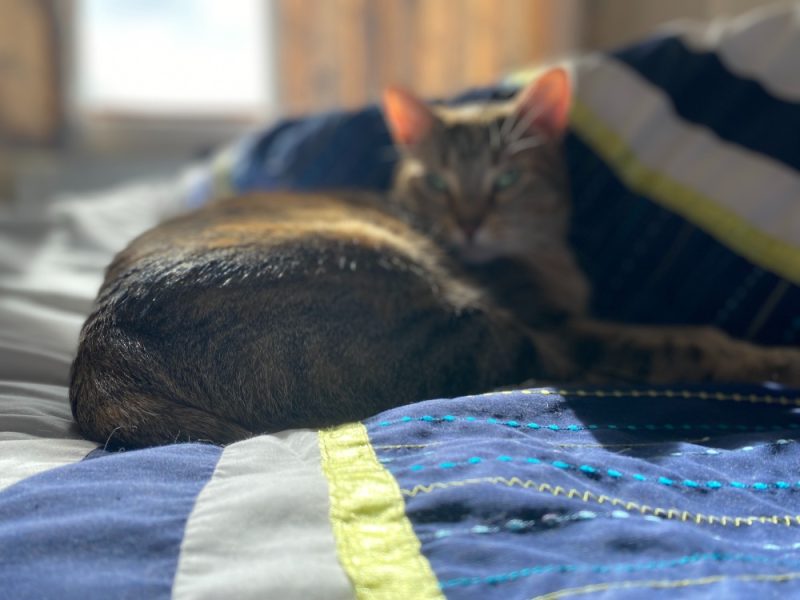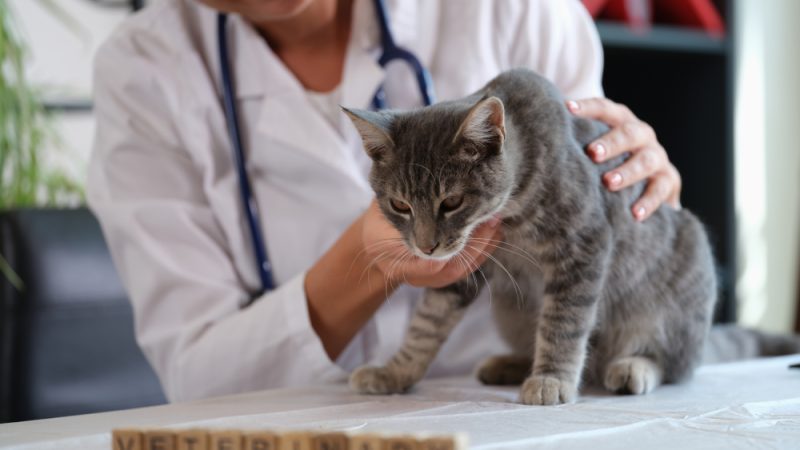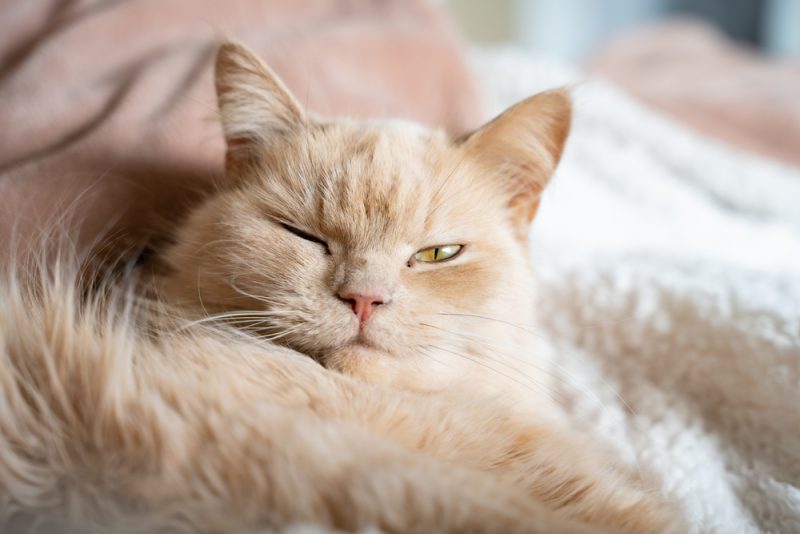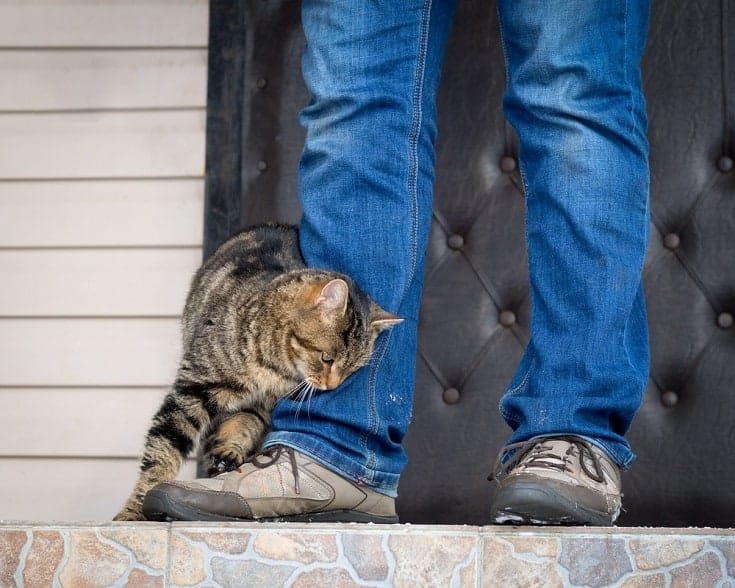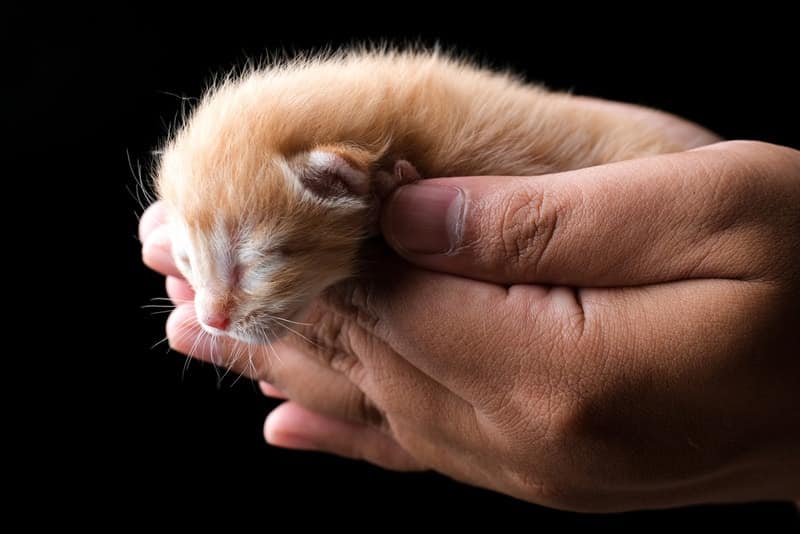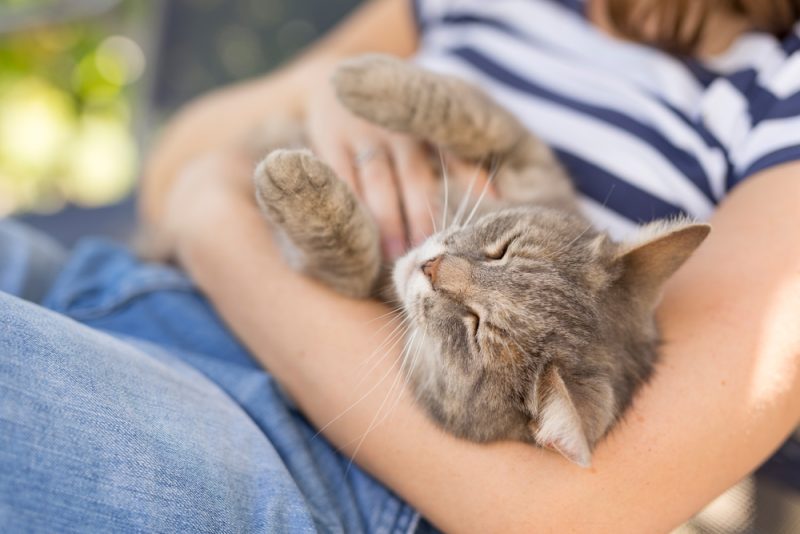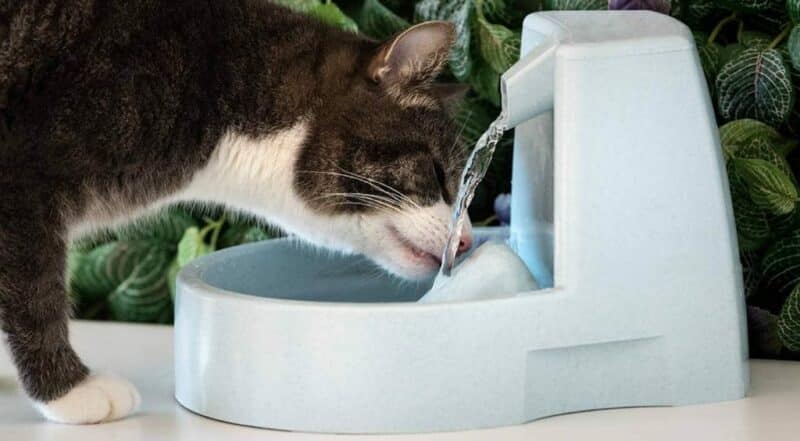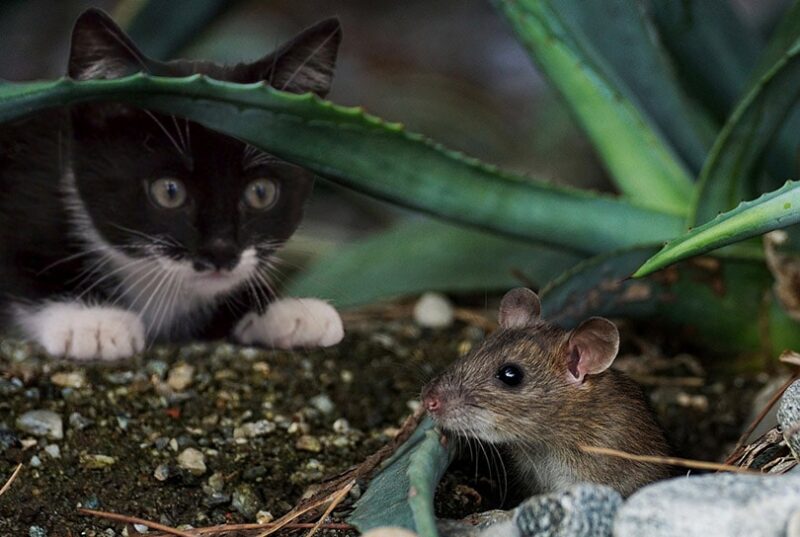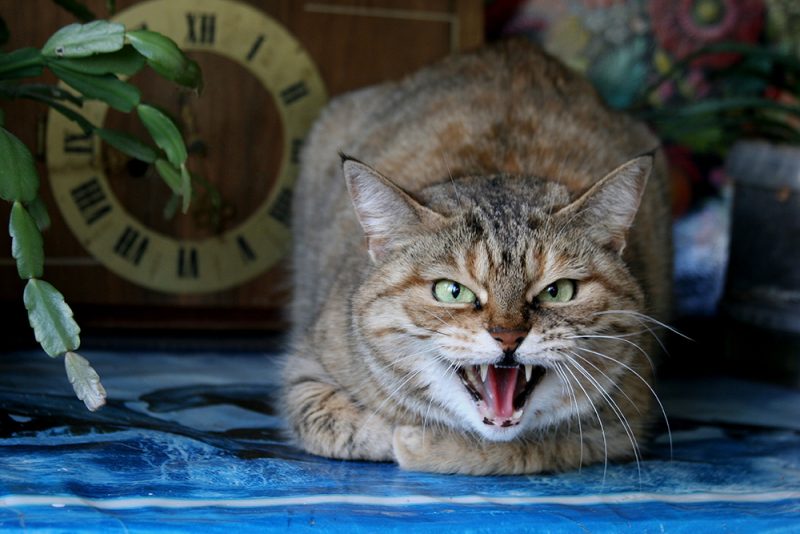Just like humans, cats have different personalities. If your cat is skittish, you may be wondering why. Some cats are simply shy and they are just as lovable! But others become skittish when they’re nervous or in pain. It’s important to understand the root cause of your cat’s skittish behavior so you can help them feel safe and secure. After all, they deserve the best life possible! Here are the potential reasons that your cat may be skittish.

The 5 Reasons Why Your Cat Could Be Skittish
1. Inadequate Socialization
Kittens that haven’t been exposed to different people, animals, and environments may be more likely to be scared of new things. Those that are well socialized between the ages of 3 and 9 weeks are less likely to be skittish toward the people, animals, and environments that they’re socialized with at this age.
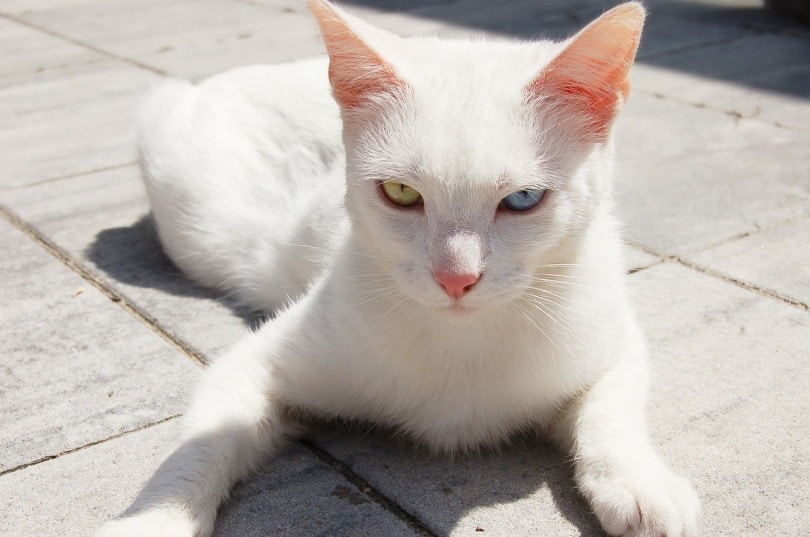
2. Stressful Environment
Cats can become skittish if there are too many loud noises, sudden movements, or unfamiliar people and animals in their environment. Stress can also come from activities like moving, new family members coming into the household, and even interacting with animals outside your window. You may have to observe your cat for a while before you find all the causes of their stress.
3. Fear and Anxiety
Fear or anxiety can result from previous trauma, such as physical abuse. A cat may become skittish in response to something that reminds them of their traumatic experience. At other times, fear can just occur randomly (if a cat is spooked by something).
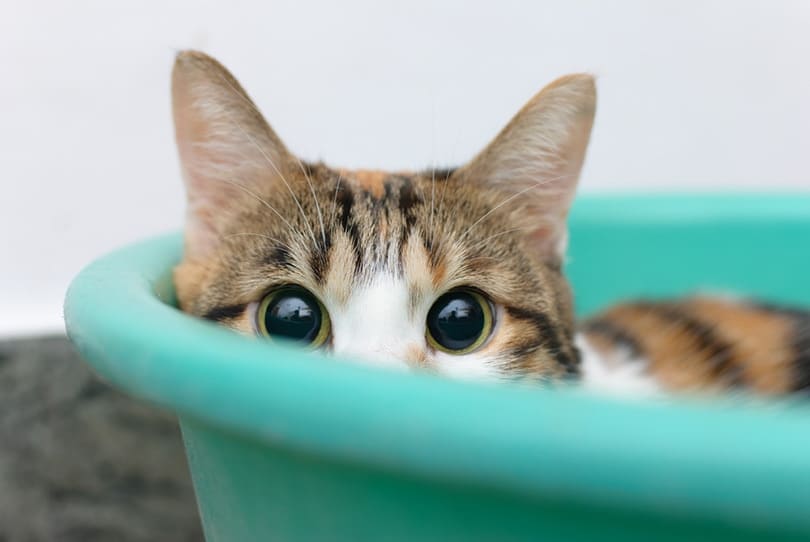
4. Medical Conditions
It is important to rule out any medical causes for your cat’s skittishness. Cats may become more withdrawn and display a change in their demeanor if they’re unwell or in pain. Have a vet check for any medical issues that could be causing them discomfort.
If you have any concerns or curiosities about your cat or their health, we recommend you contact a vet directly.
If you need to speak with a vet but can't get to one, head over to PangoVet. It's an online service where you can talk to a vet online and get the advice you need for your pet — all at an affordable price!

5. A Shy Personality
Some cats are just naturally shy, and that’s okay! As long as they can find a safe place to hide when they feel scared, you don’t have to worry.
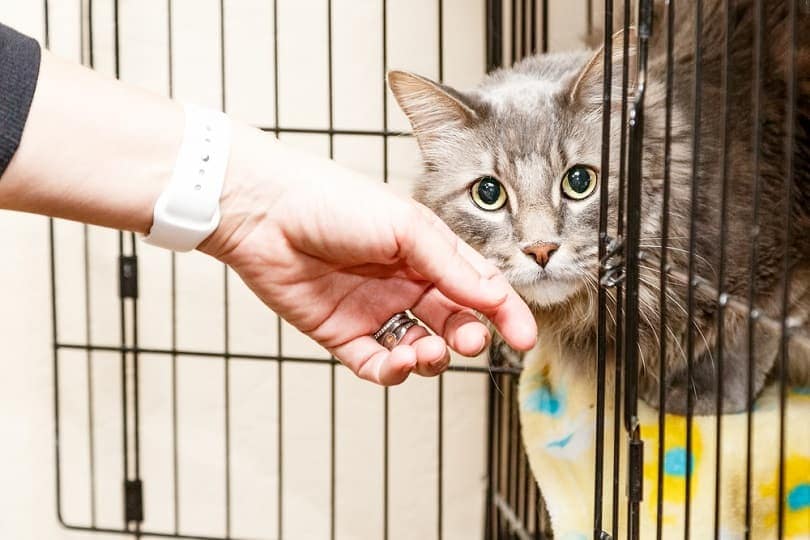

What Can You Do to Help?
Once you understand the root cause of your cat’s skittishness, you can begin to help them feel more secure and comfortable. Here are some tips for helping a skittish cat:
- Give them lots of love and patience. Don’t push your cat to interact when they’re scared, but show them kindness and affection when they do approach you. This will help build their trust in you.
- Create a calm environment. Make sure your home is quiet and free from any potential stressors. Give them a safe space to retreat if they get overwhelmed. Put a bed or a few toys in a quiet corner of the house where your cat can go to relax. If they feel cornered, give them an escape route so they don’t have to face whatever is making them nervous.
- Encourage positive interactions. Introduce your cat to new people, animals, and environments gradually so they can become comfortable with them in their own time. If you have other cats or pets, let them take the lead and show your cat that it’s safe.
- Provide plenty of enrichment. Cat trees, interactive toys, scratching posts, and window views are all great ways to help keep skittish cats mentally stimulated.
- Expose them slowly. Don’t overwhelm your cat with new people and animals all at once; introduce them one by one, and allow your cat to get used to them.
- Stay calm. Cats can sense our feelings and if we don’t have a good grip on our own anger, sadness, pain, or anxiety, our cats could be responding to us!
- Provide extra attention. Make sure to give your cat plenty of attention, love, and affection. Spend additional time playing with them, petting them, and grooming them.
Helping your skittish cat can take some time and patience, but with understanding and love, you can help them become more confident in their environment. Remember to look out for any signs of distress so you can intervene before it gets too serious.

Conclusion
If your cat is skittish, there could be a variety of causes. It’s important to consider their environment, look for any changes that may have occurred recently, and get a better understanding of their breed and temperament. Additionally, making sure your cat has a safe and comfortable place to go when they’re feeling scared, providing them with lots of love and reassurance, playing with them more often, and being aware of their body language can all help make them feel more secure. With patience and understanding, you can help your cat feel more relaxed in their home.
As always, if you feel like your cat is too skittish, seek veterinary care and advice for them.
Featured Image Credit: Zossia, Shutterstock








